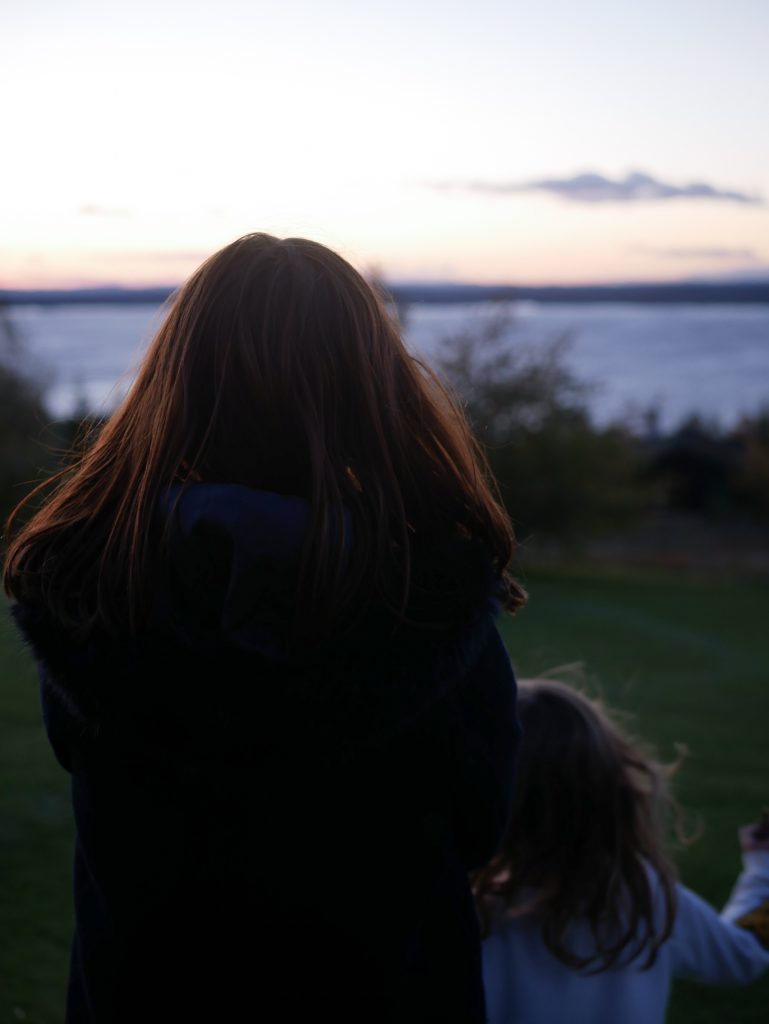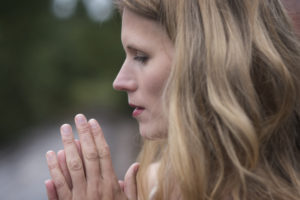
One thing I get asked a lot is how I talk to my daughters about all the things I write about. Feminism, sexual violence, body image + all the rest of the patriarchal fuckery.
And I get why you ask. It’s tricky. We want to help our daughters understand and handle this world, but we also don’t want to take away their innocence. We don’t want to frighten and discourage them.
For me, it’s not just about how I talk to my daughters, it’s what I do. How do I live my life? Do I stand up for these values in my everyday choices and actions? How do I treat myself + other women?
But what we say matters too. Something happened last week that reminded me of this.
A couple of boys in my daughter’s class had been saying mean things to the girls in the class lately. Like repeatedly shouting sexist insults out loud in class. My girl told me about it, because she knows this is not ok. I asked her what her teachers did about it and she said they remove the boys from the classroom, they speak to the parents, they have meetings with the headmaster. I asked her if they had spoken to the rest of the class about it and she said no. Nothing had been said about any of it.
So I wrote the teacher and the headmaster, telling them that above and beyond dealing with the boys, they need to address this in class. They must give the girls the proper words to help them understand what happened. They must say:
“What you just experienced is called sexism, and it’s not ok. The opinions these boys expressed is, unfortunately, part of a larger structural problem, where girls and women are not considered or treated as equal to men and boys [insert suitable historical and contemporary examples for context] and we don’t always know how to protect you from it in school. But it’s not ok. We’re working on it, and you should never have to feel unsafe here, never believe it’s your fault or that you need to change and adjust because of the mean things these boys said to you. They are the problem, not you.”
Because when we don’t have the proper words for what is happening, we’re left to try to make sense of what we’re experiencing as best we can.
And we should not leave 11-year-old girls to make sense of a sexist world. If we do, they will likely take on some or all of the blame and shame for it, belittle their own feelings about it, normalize sexist behaviour, assume (rightly) that the adult world don’t prioritize their safety.
We need to name what is going on. So I do. And since it doesn’t work to preach feminist theory to kids, I try to get very practical. Here are seven ways I talk to my girls about what it means to grow up with a female body in a patriarchal world:
1.
I use examples from movies they watch, books they read, YouTubers they follow. Gently pointing their attention towards things that they might not have noticed otherwise. I ask if she’s noticed that the girls in a magazine all look more or less the same (skinny, white, a certain type of facial features), or if she’s noticed that they never seem to laugh. “That’s weird”, she’ll respond, and we’ll talk about it. I ask them to notice how much the female characters talk in a movie compared to the male characters. I’ve taught my eldest to do the Bechdel test. Google it, it’s an easy and very practical way to make visible what we’ve learned to see as normal.
2.
If 90% of the people named in a school book are men (actual example, I counted), I first complain to the teacher and then make sure to find other sources of information where women are named and get them into the hands my daughters. I refuse to let them learn a story about the world in which women are made invisible.
3.
When they’re small, I’m intentional about the books they read and the movies they watch, offering them a wide range of perspectives rather than just the dominating one – the white male perspective. Yes, that means Disney hasn’t gotten much air-time in our house. As they grow older, I have less influence over what they consume – that’s as it should be and I rarely prohibit things, I just find ways to keep talking about it.
4.
If my youngest comes home from daycare telling me she can’t wear those trousers because they’re boy’s clothes, I bite my tounge to stop my automatic response of “No, they’re not!” because that’s not helpful. Instead I just get curious. “Really? How come? Who told you that? How do you think that person knows that? What about these other trousers, are they for boys or girls? What’s the difference? What happens if a girl wears boy’s trousers? What happens if a boy wears girl’s trousers?”
My job is NOT to get her to change her mind – if I get into the conversation with that goal, she’ll be stuck defending her standpoint or check out of the conversation altogether. I’m not there to teach her what she should think – I’m there to help her question what she’s told.
5.
I share (age appropriate) news with them and talk about how different issues are connected, such as the abortion bans in the US and the rising of the far-right movements. Or when the new law of sexual consent came about in Sweden last year, we talked about what that means, and how consent is really about your right to your body in every situation, not just sexual.
6.
We talk about physical stuff, like sex (and instead of the traditional story of male pleasure and male access to female bodies, we put all the focus on knowing what you want and like yourself) and menstruation and the way breasts ache when they grow. All of it is part of our everyday reality so we talk about it as such.
7.
We talk about why it is that girls are encouraged to care about their looks so much more than boys. What are the consequences of that? Make up and beauty care is expensive, it takes a lot of time to get “ready” in the morning, how does that affect girl’s lives?
I can’t protect them from the crap of this world, but I can give them tools to see. I can teach them to recognise power structures. I can give them the right words for what’s going on. It helps them not to internalize the crap.
It requires work on my behalf. I hate that I have to cover for school because they fall short in this area, but I will still do it, because like I said, I refuse to let my girls learn a story about the world in which women are made invisible.
And it actually helps to point out these shortcomings to the school. If enough of us get in their faces about this, they have to change. That’s something I want to show my daugthers as well. We can use our voices and protest when things are wrong (and those of us who can do so and still remain safe has an even greater responsibility to do so).
We can make change happen. We actually can.









